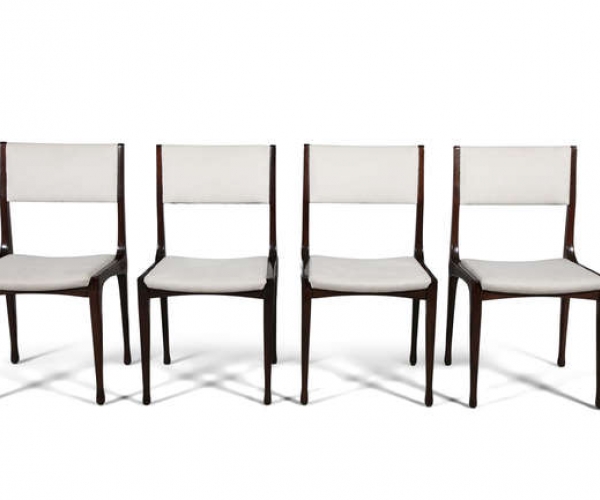Carlo de Carli was an Italian designer, architect, essayist, and academic. Born in Milan in 1919, he graduated from Politecnico di Milano in 1934 and later worked at the studio of Gio Ponti before opening a studio with Renato Angeli.Â
In 1940, he began his collaboration with the Triennale di Milano, a partnership which led to him being appointed to the Executive Committee and of the Board of Directors.
Carlo de Carli was not only hugely influential for 20th century design, he also contri
buted to the theoretical and ethical practices of the field through his research and writing. One of his most important works is the book Primary Space Architecture.
Born a year after the end of the first world war and coming of age in an Italy deeply affected by this conflict, de Carli’s work, similar to many other well-known Italian designers and artists reflects a desire for order and rationale after years of chaos. The majority of his architectural and design work was produced between World War II and the early 1970s. Among his most significant architectural projects are the residences and office building at Via dei Giardini 7 in Milan, which included the tiny Sant’Erasmo Theatre, the Opera Don Calabria at Cimiano, and the Church of Sant’Ildefonso in Milan.
He was also a prolific furniture designer, especially of chairs, desks, and tables, and worked with the leading craft and industrial design companies of the time, such as Osvaldo Borsani manufacturing company Tecno, Cassina, and Gubi.
In 1954, de Carli won the Compasso d’Oro, the highest industrial design honor in Italy, for his design of the Model 683 chair for Cassina, and in 1957 he was awarded the Triennale Grand Prix for his design of the Balestra arm chair for Tecno. From 1965 to 1968, he was Dean of the Faculty of Architecture at Politecnico di Milan, where he taught until 1986.
Read more
